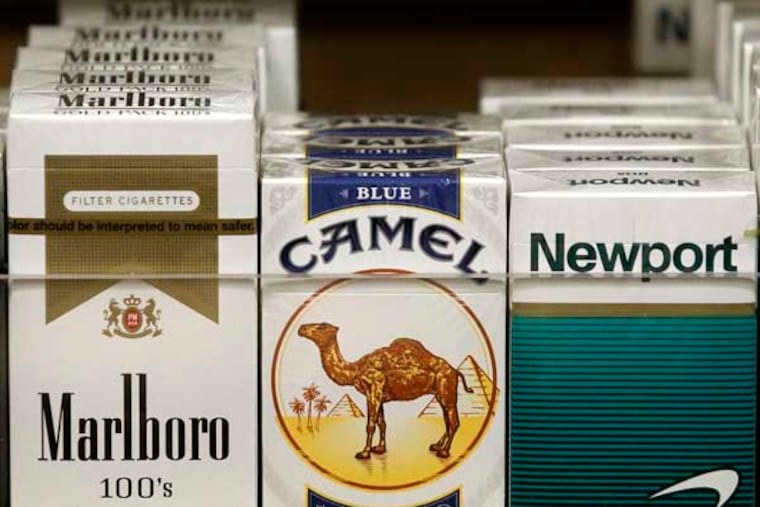FDA reviews put lengthy hold on new tobacco products
RICHMOND, Va. - Talk about a smoke break. Tobacco companies have introduced almost no new cigarettes or smokeless-tobacco products in the United States in more than 18 months because the federal government has prevented them from doing so, an Associated Press review has found.

RICHMOND, Va. - Talk about a smoke break.
Tobacco companies have introduced almost no new cigarettes or smokeless-tobacco products in the United States in more than 18 months because the federal government has prevented them from doing so, an Associated Press review has found.
It's an unprecedented pause for an industry that historically has introduced dozens of products annually, and reflects its increasingly uneasy relationship with the Food and Drug Administration, which in 2009 began regulating tobacco.
Officials at the FDA say the reviews of applications for new products have taken so long because of "significant deficiencies" and because the agency is taking extra care in reviewing products that pose public health risks. Industry executives say that cigarettes have not changed in any meaningful way and that the delays don't make sense. They say the changes are as simple as a brand-name change, cigarette filters, or, in some cases, different packaging.
Since June 2009, when the law allowing the agency to regulate tobacco went into effect, the tobacco industry has submitted nearly 3,500 product applications, according to data obtained by the AP under a Freedom of Information Act request. Although none have been ruled upon, the vast majority of these products are already being sold.
A grandfather clause in the law allows products introduced between February 2007 and March 2011 that are similar to those previously on the market to be sold while under review. They can be removed from store shelves if they do not pass muster with the agency. But 400 products submitted for review since March 2011 are being kept off the market.
The reviews, which the industry expected to take 90 days, have dragged on for years in some cases. About 90 percent of applications have lingered for more than a year.
The FDA does not have to disclose what the products are, and the companies won't say, citing competitive reasons.
Part of the problem is that the tobacco industry is still learning how to deal with being regulated.
"They have the burden of demonstrating that new products and product changes won't increase youth tobacco use, won't increase toxicity, and won't wrongly deter people from quitting," said Matt Myers, president of the Campaign for Tobacco-Free Kids.
The group has raised concerns about new products that it says were illegally introduced without review by Richmond, Va.-based Altria Group Inc., parent company of Philip Morris USA, the nation's largest tobacco company, and the No. 2 tobacco company, Reynolds American Inc.
Philip Morris USA's Marlboro Black NXT - a cigarette that can be switched to menthol by crushing a capsule in the filter - and two new styles of Reynolds' Pall Mall menthol cigarettes should not be allowed to be sold without FDA approval, the Campaign for Tobacco-Free Kids argues. The companies, however, believe that they are complying with federal law. The FDA says it is investigating.
It's essential that the FDA move "strongly and decisively to make public either why these product should be allowed to be marketed or to get them pulled off the market immediately," Myers said.